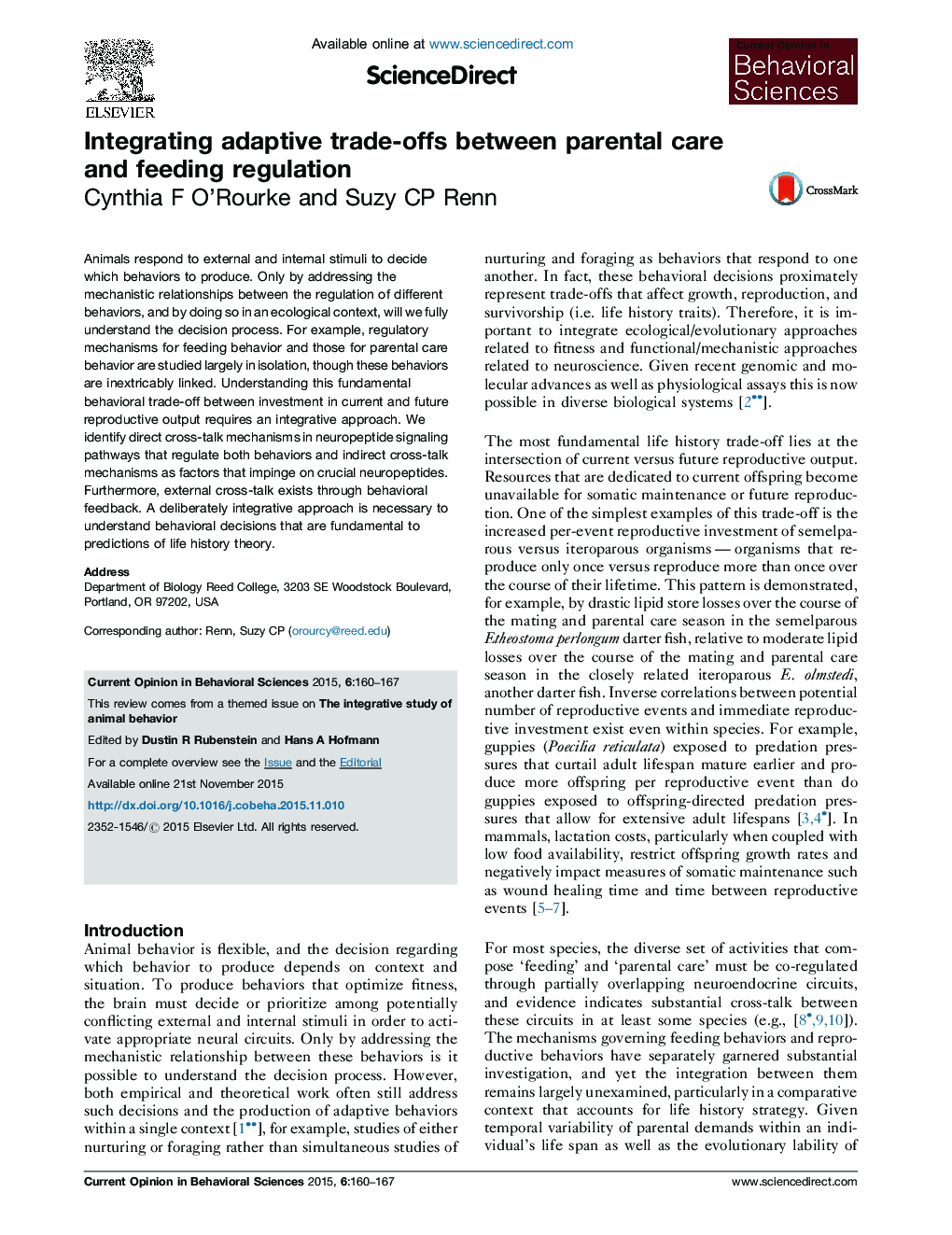| Article ID | Journal | Published Year | Pages | File Type |
|---|---|---|---|---|
| 6260778 | Current Opinion in Behavioral Sciences | 2015 | 8 Pages |
â¢Current versus future reproduction represents a fundamental life-history trade-off.â¢Co-regulation of feeding and nurturing behaviors are a focus of this trade-off.â¢Cross-talk occurs across multiple regulatory levels, both directly and indirectly.â¢Integrative approaches more effectively address behavioral and molecular questions.â¢Comparative work can help to understand origin and maintenance of coordinated regulation.
Animals respond to external and internal stimuli to decide which behaviors to produce. Only by addressing the mechanistic relationships between the regulation of different behaviors, and by doing so in an ecological context, will we fully understand the decision process. For example, regulatory mechanisms for feeding behavior and those for parental care behavior are studied largely in isolation, though these behaviors are inextricably linked. Understanding this fundamental behavioral trade-off between investment in current and future reproductive output requires an integrative approach. We identify direct cross-talk mechanisms in neuropeptide signaling pathways that regulate both behaviors and indirect cross-talk mechanisms as factors that impinge on crucial neuropeptides. Furthermore, external cross-talk exists through behavioral feedback. A deliberately integrative approach is necessary to understand behavioral decisions that are fundamental to predictions of life history theory.
